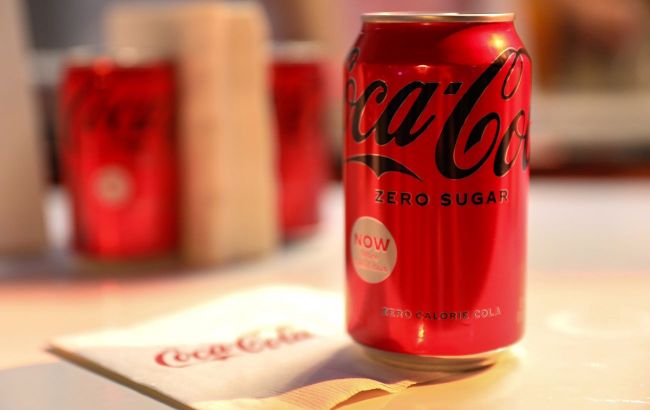Is Coca-Cola Zero really healthier: Dietitian reveals truth
 Is Coca-Cola good for your health? (Photo: Getty Images)
Is Coca-Cola good for your health? (Photo: Getty Images)
Millions of people worldwide consume Coca-Cola every day. Few consider what happens to the body with frequent consumption of such a beverage. It’s important to understand the impact of the Zero version of the drink, according to Ukrainian nutritionist Olga Dorosh.
Coca-Cola ingredients
According to the expert, Coca-Cola originally contained cocaine in 1929. Initially, the main components of the drink were caffeine-rich kola nuts and coca leaves, which contained cocaine. In 1903, coca was removed from the formula once the dangers of cocaine became known.
Diet Coke appeared in 1982 and became the most popular drink in the world.
"According to observational studies, consumption of sweetened beverages is associated with a higher risk of metabolic syndrome, obesity, and kidney disease," the report states.
The nutritionist mentioned that the exact formula of Coca-Cola drinks is confidential.
However, it is known to contain:
- Water
- Sugar or sweeteners (aspartame, acesulfame K, and cyclamate)
- Phosphoric acid
- Caramel color
- Preservatives and flavorings
What happens if you drink the beverage daily
Regarding Coca-Cola, one can contains about 10 teaspoons of sugar, which easily exceeds the daily recommended limit.
"If you were to add 10 teaspoons of sugar to a 330 ml glass, you'd likely notice the sweetness, but thanks to the carbonation and phosphoric acid, the taste is masked, making it easier to drink," added Olga Dorosh.
A 330 ml can also contains 26.4 mg of caffeine. If you are sensitive to caffeine, consider this factor.
Additionally, the drink contains phosphoric acid, used as a flavoring agent and preservative in non-alcoholic beverages. It imparts a tangy taste and prevents mold and bacteria growth.
The nutritionist noted that while the acid is recognized as safe (GRAS), scientific literature points to three main health risks associated with excessive consumption: risks to bones, kidneys, and dental health.
Moreover, if you suffer from heartburn, GERD, or bloating, consuming carbonated drinks may not be the best idea.
Is Coca-Cola Zero better?
Coca-Cola Zero boasts zero calories and sugar, using artificial sweeteners instead. However, the acid content remains, so consuming this beverage in large quantities is still not advisable.
Diet Coke is also quite sweet. The impact of artificial sweeteners on health, microbiome, and weight is controversial. While they are not poisonous, it’s sensible to avoid excessive consumption.
Moreover, producing 1 liter of Coca-Cola requires 2.7 liters of water, which is significant when considering responsible water usage (the company has even faced legal disputes over this issue).
Making it a daily drink to quench thirst is not ideal. It’s better to opt for plain water.
This material is for informational purposes only and should not be used for medical diagnosis or self-treatment. Our goal is to provide readers with accurate information about symptoms, causes, and methods of detecting diseases. RBС-Ukraine is not responsible for any diagnoses that readers may make based on materials from the resource. We do not recommend self-treatment and advise consulting a doctor in case of any health concerns.

